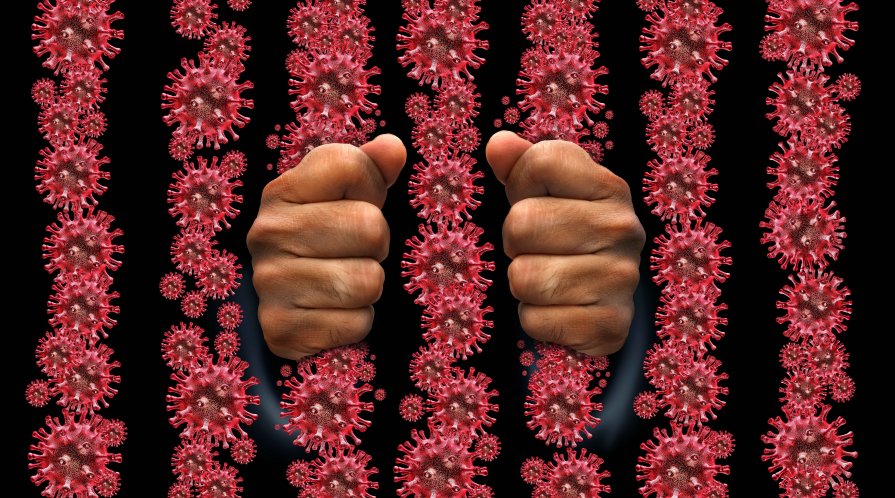Around the globe COVID-19 is still affecting people’s lives. The United States has been at the forefront of the battle against COVID-19 for months. While strides have been made and vaccines are becoming more common there are still many groups around the country being hit hard by the coronavirus, none more than prisoners in the U.S.
The main issue facing prisons around the country is the increased difficulty of social distancing in a prison setting. According to the Marshall Project 1 in 5 prisoners in the U.S. has COVID-19. In the general population only 1 in 20 people have COVID-19. At a contraction rate four times higher than the general population and a reported death count of 2,400, something needs to be done to keep prisoners safe.
Homer Venters, former Chief Medical Officer at New York’s Rikers Island jail complex, said he witnessed inmates not being tested and receiving no treatment during his time conducting court-ordered COVID-19 prison inspections.
“I still encounter prisons and jails where, when people get sick, not only are they not tested but they don’t receive care. So, they get much sicker than need be,” Venters said.
As vaccines become more readily available politicians are put in a tough spot on how to handle the distribution of the vaccines. The question of who gets the vaccine turns into an ethical dilemma. If states are looking to minimize the spread of the coronavirus prisons and jails ought to be high on the list of landing spots for the vaccines. Holly Taylor, a bioethicist with the National Institutes of Health, takes this stance.
“These decisions ought to be driven by epidemiology and where the likelihood of minimizing harm is most likely,” Taylor said.
However, not everyone agrees with this stance. Colorado Gov. Jared Polis voiced his opinion against Colorado’s vaccine distribution plan back in December. Polis said it was his belief prisoners should not receive the vaccine ahead of the general population despite the outbreaks in prisons.
“There’s no way it’s going to prisoners … before it goes to the people who haven’t committed any crime,” Polis said.
I think it is unethical to take this stance. It is easy to reduce prisoners to just that: criminals. Politicians like Polis are making this mistake. Prisoners should not be put at any higher risk than the general population. Despite the fact they are in prison I do not think this status gives politicians like Polis or anyone else a high ground to decide whether or not prisoners are more or less deserving of the vaccine than the general population.
The United States was founded on the pillar that “all men are created equal.” This principle applies to a governor and a prisoner the same way. One is not greater than the other. Prisoners are in jail to do time for their mistakes, but this does not mean their lives should be in greater danger than the general public.
Francisco Mireles, an inmate at a prison in Elkton, Ohio, wrote a letter to VICE News saying inmates at his prison were helping to treat other sick inmates who were “going in and out of consciousness, throwing up, trembling, [had] cold sweats, [had] fever, and were spitting up blood when they cough” without any prior health knowledge or safety gear.
Unacceptable conditions like these are common country wide. Prisons will continue to be the epicenters of COVID-19 unless they receive help. Giving prisons priority for the vaccine is not only the smart decision regarding minimizing risk, but more importantly it is the ethical decision regarding compassion toward fellow humans.











Be First to Comment